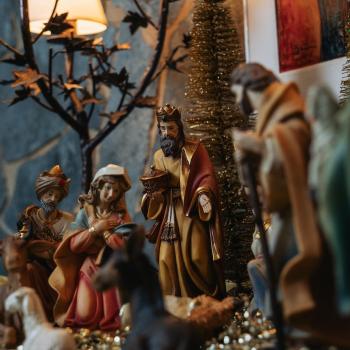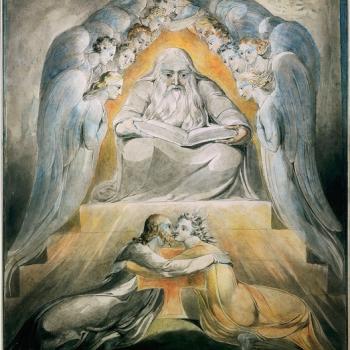If you think you're enlightened, go visit your family. Ram Dass, the influential American teacher of spirituality, said that back in the 1970s. For Ann, who called me recently to confess her fear of an upcoming family Christmas, this is more than an ironic quip.
Each Christmas, fifty of her family members—siblings, and step-siblings, spouses, children, grandchildren and assorted step-children—show up en masse at her father's ranch in Montana, each harboring a personal grievance, grudge, or secret rivalry with at least one other family member. Ann's mother can't even say hello to Ann's sister without making a comment about her weight. Two of Ann's cousins are Scientologists, another a Christian who believes that Scientology is a cult. Even the yogis in the family disagree with one another's life choices. Ann's sister-in-law left her teacher and still blogs angrily about him. That teacher happens to be Ann's teacher, which is just one more complication in the family stew.
Even in relatively happy families, where everyone enjoys the family jokes, cooks together, and does their best to get along, a family gathering can simmer like a samskaric stewpot, where everyone's psychological issues bump up against each other over drinks and dinner. Memories, rivalries, and disappointments are only a piece of it. More basic is the forced encounter with parts of yourself that you thought you outgrew years ago, and the equally insidious confrontation with the ideas that family members have about who you are. A family is not just a collection of individuals united by blood or marriage. It's a system, an entity of its own. Years after you leave home, the family system tends to pull you into itself even when you've sworn that this time you'll remain an island of loving detachment. So you revert to your role as the family rebel, or the good kid who takes care of everyone else. (And that's just your family of origin! What to say about your in-laws and the roles they might have cast you into?)
This is not to say that all families are difficult or dysfunctional. But most families have their minefields of emotional triggers. If you always felt bossed around by your sister, you might still react to her suggestions with resentment, even when you know she didn't intend to be bossy. If you and your father argued through your teen years, you may still feel the urge to defend yourself no matter what he says. Part of the difficulty is that as family members, we tend to think of each other as not having changed from the people we were when we lived together. How you were as part of the family system may have little to do with who you are today, but chances are good that many of your family members don't see that. A friend of mine relates how at one family gathering, she interrupted a conversation between her father and brother to announce that dinner was ready. "Greedy as ever," her father said. My friend, who had been chunky as a kid, was so hurt that she spent the entire meal speechless with shame and resentment. As a child, she had reacted to being denied dessert by sneaking sweets and hiding candy bars under her pillow. Now slim, healthy, and something of a food disciplinarian, it took her weeks to recover from the recognition that, ten years after she'd left home for college, her father still saw her as the daughter with no self-control.
It might have comforted her to realize that not even enlightened beings escape being seen through the prism of the family story. In Autobiography of a Yogi, Yogananda Paramahamsa's great memoir of spiritual life, he describes how the mother of his Guru came to visit Lahiri's ashram. She seemed to feel compelled to keep taking him down a peg. "I'm your mother, not your disciple!" she would say. To her, he was still the kid whose nose she'd wiped. My suspicion is that, at least occasionally, he fell into that role when he was with her. We all do.
Family Ties
None of us can help being influenced by how our family members perceived us. The way you are perceived and mirrored by others will to a large extent create your perception of yourself, and this is never truer than in your family system. Those early patterns are encoded into your brain. They are part of your internal wiring. So when you slip seamlessly into the old roles, you are actually slipping into a consciousness-matrix that you and your family members each hold in your individual emotional brains, and mirror for each other.
Your family members share not only blood and genes, but also values, and response patterns—regardless of how much all of you may have grown, changed, or worked through the family stuff. "For me," a student told me, "the hardest thing is watching myself slip into the groove of the family temperament. Everyone in my family is cheerful on the outside, and filled with existential anger underneath. After an hour in their company, all I can see are currents of undirected rage simmering in the air." In my family, we routinely interrupt each other—a tendency I've carried into later life, as friends and colleagues often point out to me.





